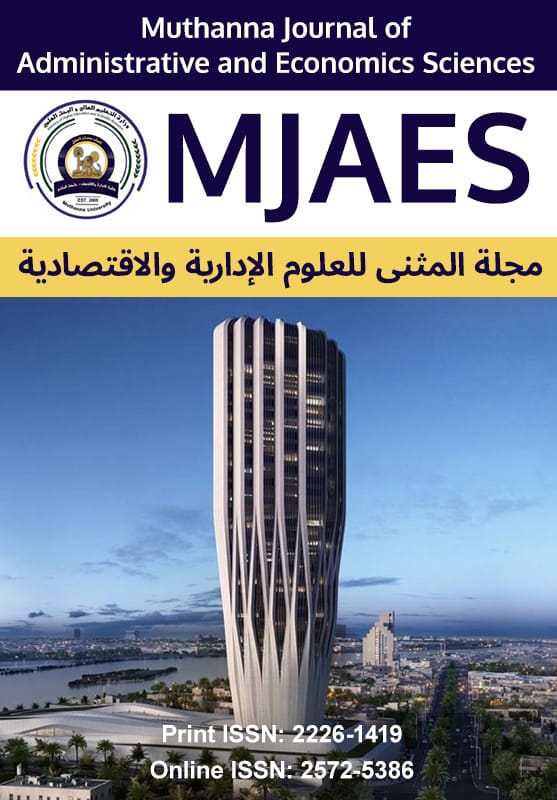Abstract
The current study seeks to clarify the relationship between soft skills and job performance. The study aimed first at clarifying the theoretical frameworks for soft skills and job performance, in terms of clarifying and defining their concepts and dimensions. After that, it moves to measure the soft skills through its dimensions: communication, decision-taking and problem-solving, time management, teamwork, leadership and working under pressure. Moreover, measuring performance by adopting the questionnaire method. The field of our study was framed in the College of Administration and Economics at the University of Mosul, while the sample consisted of a group of 136 teachers. To perform the statistical analysis, a set of statistical methods were used which are: Cronbach's alpha, Steven K. Thompson, average, weighted mean, standard deviation, variance, R2, correlation and affection. The results showed that there is a high relationships between study variables. The results of the linear regression analysis showed a positive significant effect, in addition to our monitoring of the variance relationship, by adopting SPSS V. 25. In light that, we reached a set of conclusions. The most prominent conclusion is upgrading of the soft skills levels of individuals, reflected positively in their performance levels. Then, a set of suggestions were presented.
Keywords
communication
Decision-Taking
Job performance
Leadership
Soft Skills
Teamwork
Time Management
Working under Pressure
Abstract
تسعى الدراسة الحالية لايضاح العلاقة بين المهارات الناعمة و الاداء الوظيفي؛ اتجهت الدراسة اولاً لبيان الاطر النظرية للمهارات الناعمة والاداء الوظيفي، من حيث ايضاح و تحديد مفهوميهما وابعادهما ؛ ثم اتجهت لقياس المهارات الناعمة خلال ابعادها ( الاتصال والتواصل؛ اتخاذ القرار وحل المشكلات ؛ ادارة الوقت؛ العمل ضمن الفريق؛ القيادة ، العمل تحت الضغط). وقياس الاداء الوظيفي ، وذلك باعتماد اسلوب الاستبانة. تأطر ميدان دراستنا بكلية الادارة والاقتصاد بجامعة الموصل ، فيما انضوت العينة على مجموعة من التدريسيين بلغت (136) ؛ ولاجراء التحليل الاحصائي تم استخدام مجموعة من الاساليب الاحصائية ( Cronbach's alpha؛ Steven K. Thompson ؛ المعدلات ؛ الاوساط الحسابية المرجحة؛ الانحراف المعياري ؛ التباين ؛ RII ؛ علاقات الارتباط ، علاقات التأثير) وبالوقوف على النتائج الاحصائية تم رصد العلاقات بينهما ؛ اذ تأشرت علاقة الارتباط بينهما بدرجة عالية ؛ واظهرت نتائج تحليل الانحدار الخطي وجوداً لاثر معنوي ايجابي؛ اضافة لرصدنا علاقة التباين وذلك باعتماد SPSS25 ؛ وبضوؤها توصلنا لمجموعة الاستنتاجات ؛ ابرزها ارتقاء مستوى المهارات الناعمة لدى الافراد ينعكس ايجابا بمستويات ادائهم، وبموجبه تم تقديم مجموعة من التوصيات.
Keywords
مهارات ناعمة؛ اداء وظيفي؛ كلية الادارة والاقتصاد جامعة الموصل.
